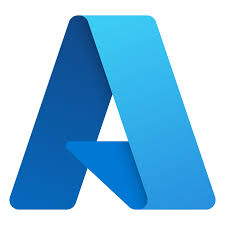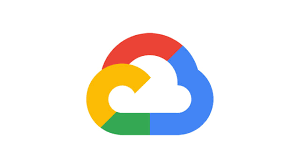
Oracle cloud fundamentals
What is Oracle cloud?
Oracle Cloud is a cloud computing service offered by Oracle Corporation providing servers, storage, network, applications and services through a global network of Oracle Corporation managed data centers. The company allows these services to be provisioned on demand over the Internet.
Oracle Cloud provides Infrastructure as a Service (IaaS), Platform as a Service (PaaS), Software as a Service (SaaS), and Data as a Service (DaaS). These services are used to build, deploy, integrate, and extend applications in the cloud. This platform supports numerous open standards (SQL, HTML5, REST, etc.), open-source applications (Kubernetes, Spark, Hadoop, Kafka, MySQL, Terraform, etc.), and a variety of programming languages, databases, tools, and frameworks including Oracle-specific, Open Source, and third-party software and systems.
This post will give you a high-level overview of this cloud computing platform. We’ll talk about what Oracle Cloud is, how OCI fits in with the other cloud players, and why you should care about it. We’ll explain how its infrastructure can help support OLTP applications and data transfer intensive workloads, and look at how you can take your learning further with Oracle Cloud.
We’re going to focus on two different viewpoints:
- You as a potential Oracle Cloud business user.
- You as a student, thinking about getting Oracle Cloud certified.
Let’s get started!
Oracle Cloud vs other cloud platforms
Starting at the end of 2016, Oracle Cloud is one of the newer players in the field. There are basically two different groups of cloud right now: industry leaders and niche players. Gartner has a really nice graph that explains the details and gives you a rough outline of the lay of the land. Graph, ahoy!
As you can see, Amazon Web Services (AWS), Microsoft Azure, and Google Cloud (GCP) are the leaders in this space. While Alibaba, Oracle, IBM, and Tencent find themselves in the “niche player” section.
Although Oracle is currently listed as a niche player, they have the customer base and the desire to grow into an industry leader like the big three.
When looking at the graph, it’s important to understand that niche doesn’t necessarily mean second tier. In fact, these platforms might offer the best option for you — depending upon your specific needs.
With that in mind, we’re going to grab waders and head on into some deeper water. I’m going to talk to you now about the services that Oracle Cloud provides and what the most likely use cases are.
Oracle infrastructure, services, and data regions
To start off with, we’ll take a look at reliability and data regions.
How many data regions does Oracle Cloud have?
Oracle calls its data regions “cloud regions.” Oracle has currently over 30, including government. Basically anywhere you need to be, Oracle is there.
This is reinforced with Oracle’s partnership with Microsoft. There are currently multiple regions that share an interconnection between Oracle Cloud and Microsoft Azure. This allows customers to move easily between applications in the cloud.
How reliable is Oracle Cloud?
As far as reliability, Oracle has a reliable infrastructure that is backed by a very thorough end-to-end SLA that covers performance, availability, and manageability of services.
What are Oracle Cloud’s strengths and weaknesses?
While there are a ton of services that we can talk about in Oracle Cloud. I’m going to focus on a few of Oracle’s strengths.
Oracle Bare Metal Cloud
Oracle Bare Metal Cloud is a collection of cloud services that let you build the environment that you need.
Bare metal services means no hypervisor, just physical compute nodes. This is extremely helpful in the following situations:
- You want high performance (which usually means something to do with databases).
- You want greater control.
- You want better cost management.
Basically you have more freedom to do what you want. The cost of this comes in the form of more skills and time required to configure the system as you like it.
If you find yourself unfamiliar with the concepts of bare metal servers, hypervisors, and the like, you probably will find that Oracle Cloud is a weaker fit than some of the big three cloud providers as Oracle, in general, requires more cloud knowledge.
Oracle Cloud Databases
Speaking of databases, let’s talk about Oracle Cloud database options. These are absolutely the greatest strength of Oracle Cloud, which shouldn’t be a great surprise seeing as Oracle’s largest customer base is database driven.
Oracle Exadata, for instance, is a computing platform optimized for running Oracle Database. It excels at online transactional processing (OLTP) applications that are running simultaneously.
Of course, any review of Oracle Cloud wouldn’t be complete without a discussion of its famous Autonomous Databases, which are well suited for OLTP. An Autonomous Database is a mixture of a traditional database with machine learning to provide a host of advantages — it offers automated patching, optimization backup, and it’s self-repairing
Oracle on-premises and hybrid environments
Finally, let’s talk about on-premises. Oracle Cloud, especially excels at migrations and support of hybrid environments.
Oracle designs its cloud environment with one of their primary targets being their existing user base. That user base is almost exclusively on-premises. With that knowledge, Oracle has designed many helpful features for users to migrate into the cloud. They also have a very robust support model for hybrid environments.
Oracle Cloud weaknesses
While Oracle is clearly growing at a massive rate, their biggest weakness at this stage is once you step outside of that core use case and into the lower-end offerings or more edge cases, the features don’t match up well against larger competitors like Microsoft Azure or AWS.
What are some Oracle Cloud use cases?
Let’s take a look at what I would see as an ideal customer for Oracle Cloud by looking at two use cases.
- Zoom — Zoom is a massively popular platform for online meetings. One of the main reasons Zoom chose Oracle over other cloud providers is because of price. Zoom has hundreds of thousands of terabytes of traffic flowing through the cloud every month and Oracle Cloud charges significantly less for data transfer pricing. If you need a massive amount of data transfer or storage, it could make Oracle Cloud a great choice over other cloud providers due to their competitive price offering.
- Oracle Database users — If you’re an Oracle Database user, you’ll find that Oracle has built their cloud with this use case in mind. From pricing to support the database options to hybrid, and on-prem, there’s a ton of things to like about Oracle Cloud for existing Oracle users.
Oracle has definitely targeted large-scale database users with high traffic and storage requirements and their current customers as ideal targets for Oracle Cloud.
This is not to say that there aren’t other use cases. Oracle is absolutely growing in leaps and bounds in their offerings, and — based on their partnership with Microsoft and its almost doubling of cloud regions in 2020 — this is a trend that’s expected to continue.
Oracle Cloud offers free trials and has a pretty robust cloud cost estimator. I would absolutely suggest that you check that out and poke around a little.
Learning Oracle Cloud
You might find yourself thinking, “Will getting an Oracle certification help me in my career?” The answer is a resounding yes!
There is an immense value in understanding competing platforms. It makes you a more sought after candidate, provides you with greater insight into where a potential customer may be coming from, and it broadens your understanding of cloud concepts.
I highly suggest anyone in cloud take some time to learn a couple of different platforms. And I would specifically call out the Oracle Cloud Foundations or Oracle Cloud Architect Associate certifications as great targets that will help give you a foundation into Oracle Cloud.
Curriculum
- 0 Sections
- 0 Lessons
- 0 Quizzes
- 40h Duration


